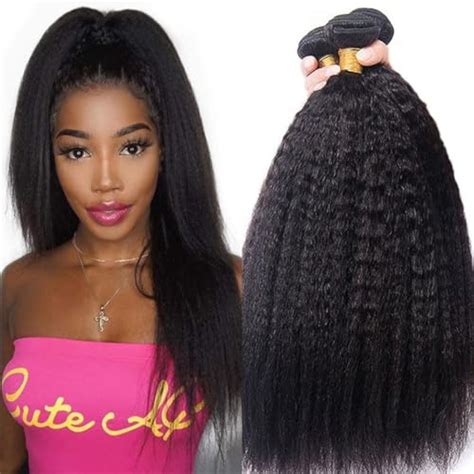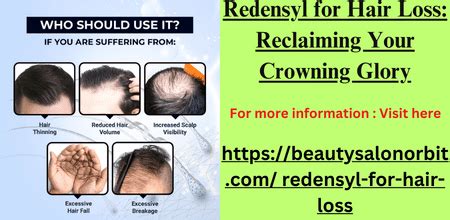Hair loss can be a devastating blow to a man’s confidence and self-esteem. According to the American Hair Loss Association, over 50% of men experience significant hair loss by the age of 50. While there are numerous causes of hair loss, such as genetics, medical conditions, and aging, it can be particularly disheartening for men who have always had thick, full hair.

Fortunately, there is a wide range of hair replacement options available today, including hair systems. Hair systems are non-surgical solutions that provide men with a natural-looking, full head of hair. In this comprehensive guide, we will explore everything you need to know about hair systems for men, including different types, materials, benefits, and how to choose the right one for you.
Understanding Hair Systems
A hair system, also known as a hairpiece or toupee, is a non-surgical hair replacement solution that is attached to a man’s scalp. It is designed to provide coverage for areas of hair loss, such as a receding hairline, thinning crown, or bald spots. Hair systems are often custom-made to match the wearer’s natural hair color, texture, and density, resulting in a realistic, undetectable appearance.
Types of Hair Systems
There are various types of hair systems available, each with its unique advantages and disadvantages. The two main types are stock and custom hair systems.
Stock Hair Systems
- These are pre-made hairpieces that come in standard sizes and colors.
- They are typically less expensive than custom hair systems.
- However, they may not provide the best fit or blend with the wearer’s natural hair.
Custom Hair Systems
- These are crafted specifically for the individual wearer, based on their hair measurements, color, and style preferences.
- They offer a more personalized and natural-looking result.
- As a result, custom hair systems are generally more expensive than stock hair systems.
Materials Used in Hair Systems
Hair systems can be made from a variety of materials, including human hair, synthetic hair, and a combination of both.
Human Hair
- Provides the most natural appearance.
- Can be styled, colored, and cut like natural hair.
- However, it is more expensive and requires more maintenance than synthetic hair.
Synthetic Hair
- More affordable and requires less maintenance than human hair.
- Comes in a wide range of colors, styles, and textures.
- However, it may not have the same natural appearance as human hair.
Combination Hair
- Combines the benefits of both human and synthetic hair.
- Provides a natural appearance with less maintenance than human hair.
- Typically less expensive than 100% human hair systems.
Benefits of Hair Systems for Men
Choosing a hair system can offer numerous benefits for men experiencing hair loss.
- Improved Confidence and Self-Esteem: A full head of hair can significantly boost confidence and self-esteem, leading to a more positive self-image.
- Natural Appearance: Modern hair systems are designed to blend seamlessly with the wearer’s natural hair, creating a realistic and undetectable look.
- Convenience: Hair systems are relatively easy to maintain and can be attached and removed without the need for surgery.
- Non-Invasive: Unlike hair transplants, hair systems are a non-surgical solution that does not involve any invasive procedures.
- Immediate Results: Hair systems provide instant coverage for hair loss, giving men immediate results without having to wait for hair growth.
Choosing the Right Hair System
Selecting the right hair system involves considering several key factors.
Type of Hair Loss: Different hair systems are better suited for different types of hair loss. For example, stock hair systems may be suitable for temporary hair loss due to illness or medication, while custom hair systems are ideal for permanent hair loss due to genetics or aging.
Budget: Hair systems vary in price depending on the type, materials, and customization. It is important to determine a budget before selecting a hair system.
Maintenance: Hair systems require regular maintenance to keep them looking their best. Consider the time and effort you are willing to put into maintaining a hair system.
Installation Method: Hair systems can be attached using various methods, such as tape, glue, or clips. The best method will depend on your individual needs and preferences.
Consultation: It is recommended to consult with a professional hair restoration specialist to discuss your options and choose the most suitable hair system for your specific needs.
How to Apply a Hair System
Applying a hair system involves several steps:
- Prepare the Scalp: Wash and dry your scalp to remove any dirt or oils.
- Apply Adhesive: Apply a small amount of adhesive to the scalp areas where the hair system will be attached.
- Position the System: Carefully place the hair system onto the scalp, aligning it correctly.
- Secure the System: Press down firmly on the hair system to secure it in place.
- Style the Hair: Style the hair system as desired using a brush or comb.
Tips and Tricks
- For a more natural look, choose a hair system that matches your natural hair color and texture as closely as possible.
- To prevent damage, avoid using harsh chemicals or heat styling tools on your hair system.
- Be patient when applying a hair system. It may take a few attempts to get the hang of it.
- If you experience any irritation or discomfort, remove the hair system immediately and consult with a hair restoration specialist.
- Clean your hair system regularly using a mild shampoo and conditioner.
- Store your hair system properly in a cool, dry place when not in use.
Comparison of Hair Systems vs. Other Hair Loss Treatments
Hair Systems vs. Hair Transplants:
- Hair systems offer immediate results, while hair transplants require time for hair to grow.
- Hair transplants are a permanent solution, while hair systems require ongoing maintenance.
- Hair transplants are more expensive than hair systems.
Hair Systems vs. Minoxidil:
- Minoxidil is a topical medication that may help slow down hair loss.
- Minoxidil is less expensive than hair systems.
- Minoxidil does not provide instant results and may not be effective for all types of hair loss.
Conclusion
Hair systems for men offer a safe, effective, and convenient solution for hair loss. By carefully considering the type of hair system, materials, and maintenance requirements, men can achieve a natural-looking, full head of hair that can restore their confidence and self-esteem. With proper care and maintenance, a hair system can provide years of satisfaction and help men regain their youthful appearance.
- American Hair Loss Association
- International Society of Hair Restoration Surgery
- National Institutes of Health
- Androgenetic alopecia: A common type of hair loss caused by genetics and aging.
- Bald spot: An area of the scalp where hair has stopped growing.
- Non-surgical hair replacement: Hair loss treatments that do not involve surgery.
- Receding hairline: A gradual loss of hair at the front of the scalp.
- Thinning crown: A gradual loss of hair on the top of the scalp.
Table 1: Comparison of Hair Systems vs. Hair Transplants
| Feature | Hair Systems | Hair Transplants |
|---|---|---|
| Results | Immediate | Gradual |
| Permanence | Non-permanent | Permanent |
| Cost | Less expensive | More expensive |
Table 2: Types of Hair Systems
| Type | Description |
|---|---|
| Stock | Pre-made hairpieces in standard sizes and colors |
| Custom | Crafted specifically for the individual wearer |
Table 3: Materials Used in Hair Systems
| Material | Advantages | Disadvantages |
|---|---|---|
| Human Hair | Natural appearance, can be styled and colored | More expensive, requires more maintenance |
| Synthetic Hair | Affordable, requires less maintenance | May not have the same natural appearance as human hair |
| Combination Hair | Combines the benefits of both human and synthetic hair | Less expensive than 100% human hair systems |
Table 4: Benefits of Hair Systems for Men
| Benefit | Description |
|---|---|
| Improved Confidence and Self-Esteem | A full head of hair can significantly boost confidence and self-esteem. |
| Natural Appearance | Modern hair systems are designed to blend seamlessly with the wearer’s natural hair. |
| Convenience | Hair systems are relatively easy to maintain and can be attached and removed without the need for surgery. |
| Non-Invasive | Hair systems are a non-surgical solution that does not involve any invasive procedures. |
| Immediate Results | Hair systems provide instant coverage for hair loss, giving men immediate results. |
